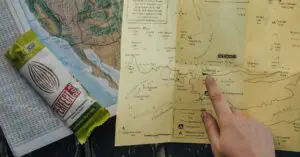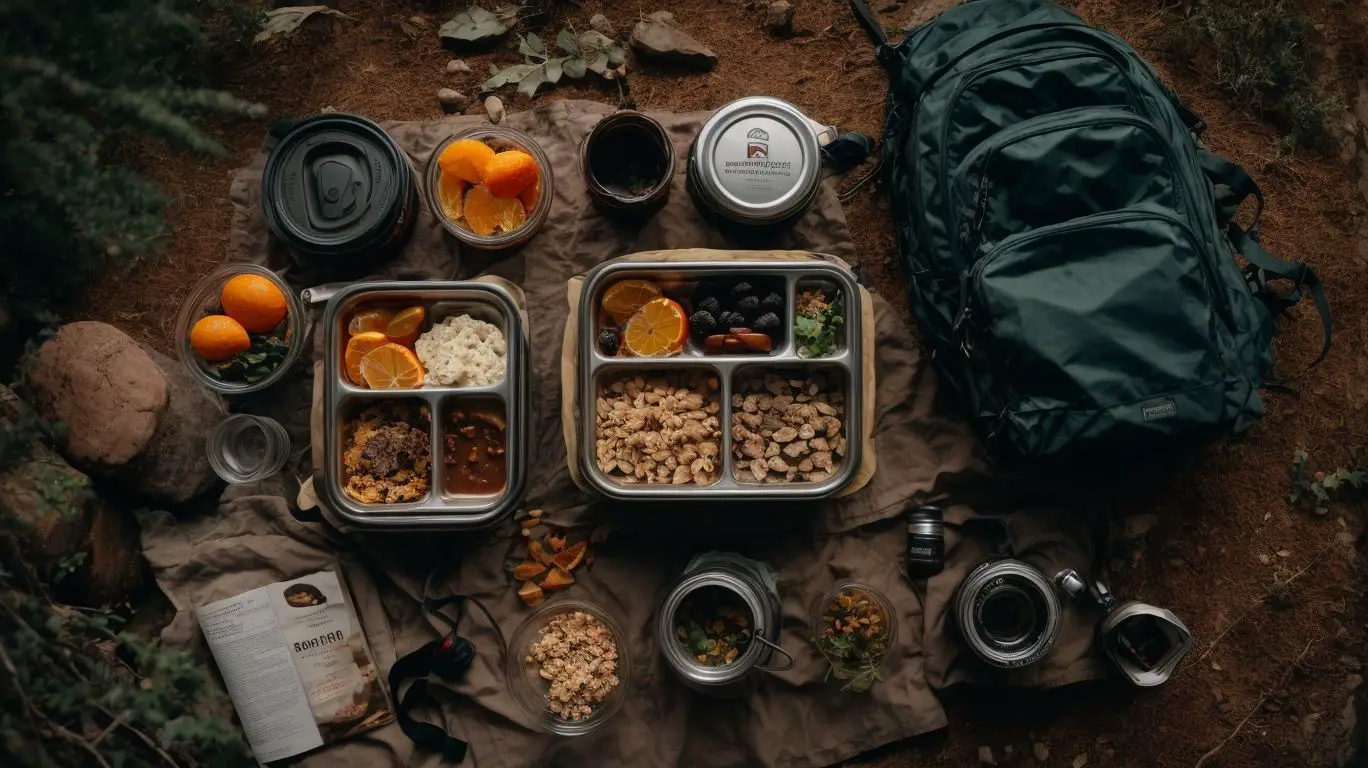Best Hiking Snacks and Meals
What you will learn in this Article
Proper nutrition plays a crucial role in ensuring a successful and enjoyable hiking experience. When embarking on a hiking adventure, it is essential to fuel your body with the right combination of snacks and meals to provide sustained energy and nourishment on the trail. With expertise in Hiking Nutrition, this informative article will guide you through the best hiking snacks and meals to optimize your performance and enjoyment while exploring the great outdoors.
By understanding the importance of proper nutrition, exploring the best hiking snacks and meals, adhering to hiking nutrition tips, and following safety practices, you can optimize your hiking adventure and fully enjoy the wonders of the great outdoors, all while nourishing your body for peak performance.
Why is Proper Nutrition Important for Hiking?
Proper nutrition is crucial for hiking due to several reasons. The primary reason is that it provides the necessary energy to fuel your body during long treks on the trail. By consuming a balanced diet that includes carbohydrates for energy, protein for muscle repair, healthy fats for sustained energy, and essential vitamins and minerals, you can optimize your hiking experience and enjoy the great outdoors and experience the full health benefits of hiking to the fullest extent.
Additionally, proper nutrition plays a vital role in maintaining physical endurance, preventing fatigue, and improving overall performance. It also aids in muscle repair and recovery, reducing the risk of injuries. Moreover, it ensures a well-functioning immune system, which reduces the likelihood of falling ill while hiking. Therefore, it is clear why proper nutrition is important for hiking.
Hiking Snacks: Energy Boosters on the Trail



When going hiking, it’s important to choose energy-boosting snacks that provide a boost of energy to keep you going on the trail. Here are some hiking snacks to consider that will give you an energy boost:
- Trail mix: A mix of nuts, dried fruits, and seeds is the perfect hiking snack and provides a good balance of protein, healthy fats, and carbohydrates, giving you that much-needed energy on the trail.
- Granola bars: Look for granola bars made with whole grains and natural ingredients to sustain your energy levels during your hike.
- Energy bars: These specially designed bars are great for hiking as they provide a quick burst of energy with their high carbohydrate content, keeping you going on the trail.
- Fresh fruits: For a quick and natural energy boost, pack some fresh fruits like bananas and apples, which are full of vitamins and natural sugars, perfect for hiking.
- Beef jerky: A lightweight and protein-packed snack, beef jerky is an excellent source of energy for your hiking adventure and doesn’t require refrigeration.
Remember to choose snacks that you enjoy and are easy to carry on your hike. Stay hydrated and have fun on your hiking adventure!
What Are the Best Hiking Snacks?
When preparing for a hike, it’s important to consider what are the best hiking snacks that can make a big difference in your energy levels and overall enjoyment. Here are some options to consider:
- Trail mix: A versatile and portable choice, trail mix offers a satisfying mix of protein, healthy fats, and carbohydrates by combining nuts, dried fruit, and sometimes chocolate or seeds.
- Energy bars: Look for bars that are high in calories and provide a good balance of protein, carbs, and fats. Popular brands like Clif Bar and RXBAR offer a variety of flavors and nutritional profiles.
- Fruit: Fresh fruit such as apples, bananas, and oranges provide hydration and natural sugars for an instant energy boost. Alternatively, dried fruit like apricots or mangoes can be a lightweight and delicious option.
- Jerky: Beef or turkey jerky is high in protein and easy to pack, making it a great choice to keep you feeling satisfied and fueled during your hike.
- Nut butter: Single-serve packets of peanut or almond butter offer a convenient source of protein and healthy fats. They can be enjoyed with crackers, fruit, or straight from the packet.
Remember to select snacks that not only provide energy but also taste good to you. It’s important to experiment with different options to find what you enjoy and what sustains you during your adventures in nature.
How to Choose Snacks with the Right Nutritional Value?
Looking for advice on how to choose snacks with the right nutritional value? Here are some factors to consider when fueling your hiking adventures:
- Energy content: Ensure that your snacks have a well-balanced combination of carbohydrates, protein, and healthy fats. This will provide you with sustained energy throughout your hike.
- Nutrient density: Opt for snacks that are rich in vitamins, minerals, and antioxidants. These nutrients will support your overall health and aid in post-hike recovery.
- Portability: It’s important to choose snacks that are lightweight, compact, and easy to carry in your backpack. This will make the hiking experience more convenient.
- Allergies or dietary restrictions: Take into consideration any specific dietary needs or restrictions you may have, such as gluten-free, vegan, or nut-free options.
- Taste and enjoyment: To keep morale and motivation high on the trail, select snacks that you genuinely enjoy eating.
When it comes to snack suggestions, you can try trail mix, energy bars, jerky, dried fruits, and nut butter packets. Don’t be afraid to experiment with different options to find what works best for you!
Quick and Easy Homemade Hiking Snack Recipes
When it comes to quick and easy homemade hiking snack recipes, fueling your adventure on the trail is key. Here are a few ideas to try:
- Trail mix: Combine nuts, dried fruits, and seeds for a portable snack packed with energy.
- Energy balls: Mix oats, nut butter, honey, and add-ins like chocolate chips or coconut for a bite-sized treat.
- Granola bars: Make your own with oats, honey, nuts, and dried fruits for a nutritious and satisfying snack.
- Veggie wraps: Roll up veggies, hummus, and other fillings in a tortilla for a refreshing and portable option.
- Homemade jerky: Marinate lean meats in spices and then dehydrate for a protein-packed snack on the go.
With these quick and easy homemade hiking snack recipes, you can stay fueled and energized during your outdoor adventures.
Hiking Meals: Fueling Your Adventure



Fueling your adventure on the hiking trails goes beyond just satisfying your hunger. In this section, we’ll explore the world of hiking meals and discover how they play a crucial role in providing the energy and nutrients needed for your outdoor escapades.
From important considerations in planning your hiking meals to the debate between pre-packaged and homemade options, we’ll also unveil delicious and nutritious meal ideas that will keep you fueled and ready for any hiking challenge that comes your way. Let’s embark on a culinary journey that complements your hiking experience.
Planning Hiking Meals: Important Considerations
When planning hiking meals, there are important considerations to keep in mind to ensure you have nourishing and satisfying food on the trail.
- Dietary Needs: Take into account any dietary restrictions or allergies when selecting meals.
- Calorie Intake: Calculate the number of calories you’ll burn during your hike and choose meals that provide enough energy.
- Weight and Space: Opt for lightweight, compact meals that are easy to carry and won’t take up too much room in your backpack.
- Nutritional Balance: Aim for meals that include a balance of carbohydrates, protein, and healthy fats to keep you fueled and sustained.
- Ease of Preparation: Consider the time and resources you’ll have available on the trail and choose meals that are easy and quick to prepare.
Remember to pack meals that you enjoy and that will keep you satisfied and energized throughout your hike. Suggestions could include dehydrated meals, trail mix, energy bars, and pre-packaged freeze-dried meals.
When it comes to planning hiking meals, there are important considerations that you should keep in mind. These considerations will enable you to have nourishing and satisfying food during your hike.
- Take into account any dietary restrictions or allergies you may have when selecting your meals. It is crucial to ensure that the meals you choose align with your dietary needs.
- Calculate the number of calories you are likely to burn during your hike. This will help you choose meals that provide enough energy to keep you going.
- Opt for lightweight and compact meals that won’t take up too much space in your backpack. This will ensure that your backpack remains easy to carry.
- Aim for meals that offer a nutritional balance of carbohydrates, protein, and healthy fats. This balance will help keep you fueled and sustained throughout your hike.
- Consider the time and resources available to you on the trail. Choose meals that are easy and quick to prepare, as this will save you time and effort.
Always remember to pack meals that you enjoy and that will keep you satisfied and energized throughout your hike. Some suggestions for such meals include dehydrated meals, trail mix, energy bars, and pre-packaged freeze-dried meals.
Pre-Packaged vs. Homemade Hiking Meals
When it comes to choosing hiking meals, you have the option of pre-packaged or homemade meals. The decision between pre-packaged and homemade hiking meals ultimately depends on your personal preferences and needs. Here are some factors to consider when deciding between the two options:
- Convenience: Pre-packaged meals are a convenient choice as they require no preparation and are ready to eat. On the other hand, homemade meals require more time and effort to prepare and pack.
- Taste: Homemade meals often taste fresher and can be customized to suit your preferences. Meanwhile, pre-packaged meals offer a wide variety of flavors and cuisines to choose from.
- Nutritional value: With homemade meals, you have the ability to control the ingredients and ensure they meet your specific nutritional needs. However, pre-packaged meals may contain added preservatives or higher sodium content.
- Cost: Homemade meals can be more cost-effective, especially when ingredients are purchased in bulk. On the other hand, pre-packaged meals may be more expensive but can save you time and effort.
- Dietary restrictions: Homemade meals are ideal for accommodating dietary restrictions and allergies since you have control over the ingredients. On the contrary, pre-packaged meals may have limited options for specific diets.
Ultimately, the choice between pre-packaged and homemade hiking meals depends on factors such as convenience, taste, nutritional value, cost, and dietary restrictions. It may be beneficial to try both options and see which works best for your hiking adventures.
Delicious and Nutritious Hiking Meal Ideas
When it comes to planning meals for hiking, it’s important to choose options that are both delicious and nutritious to keep you fueled for your adventure. Here are some ideas for hiking meals that meet both criteria:
| Breakfast | Scrambled eggs with vegetables and cheese |
| Lunch | Whole grain wrap with turkey, avocado, and vegetables |
| Snacks | Trail mix with nuts, dried fruit, and dark chocolate |
| Dinner | Quinoa salad with grilled chicken and roasted vegetables |
| Dessert | Energy bars made with oats, nut butter, and honey |
These meal ideas provide a balance of carbohydrates, protein, and healthy fats to sustain your energy levels during hiking. Don’t forget to pack plenty of water and choose lightweight, portable options for easier carrying.
Hiking Nutrition Tips: Staying Healthy on the Trail



Fueling your body properly while hiking is essential for staying healthy on the trail. In this section, we’ll dive into some hiking nutrition tips that will help you maintain your energy levels and keep you going strong. From the importance of hydration and tips for proper hydration, to managing your macronutrient intake during hiking, and discovering key nutrients for hikers and their food sources, we’ve got you covered. Get ready to learn how to fuel your adventures and optimize your hiking nutrition!
Hydration: Importance and Tips for Proper Hydration
Hydration is of utmost importance for hiking as it plays a vital role in maintaining energy levels, preventing fatigue, and regulating body temperature. Here are some valuable tips for ensuring proper hydration while on the trail:
| – Prior to setting off on your hike, make sure to start hydrating in advance and continue drinking water consistently throughout the journey. |
| – It is crucial to carry an adequate amount of water, taking into consideration the duration and intensity of your hike. |
| – Even if you don’t feel thirsty, it is essential to drink at regular intervals to keep your body hydrated. |
| – In order to replenish the minerals lost through sweating, include electrolyte-rich drinks or snacks as part of your hydration routine. |
| – Excessive consumption of caffeine and alcohol should be avoided as they can contribute to dehydration. |
| – For longer hikes, consider utilizing a hydration pack or a water purification system to ensure a steady supply of clean water. For a great option, check our Lifestraw Personal Water Filter Review. |
Managing Your Macronutrient Intake during Hiking
Properly managing your macronutrient intake during hiking is crucial for sustained energy and endurance. When planning your hiking meals, it is important to consider managing your macronutrient intake. This can be achieved by incorporating the following macronutrients into your meals:
- Carbohydrates: Carbohydrates are essential as they provide quick energy and should make up the majority of your hiking meals. It is recommended to choose complex carbs like whole grains, fruits, and vegetables to fuel your body.
- Proteins: Proteins play a crucial role in muscle repair and recovery. It is advised to include lean meats, poultry, fish, beans, and nuts in your meals to meet your protein needs.
- Fats: Fats serve as a source of sustained energy during hiking. Opting for healthy fats like avocados, nuts, seeds, and olive oil is recommended to provide the necessary fuel for your adventure.
By balancing these macronutrients in your hiking meals, you can ensure meeting your energy needs throughout your hike. It is essential to consider your activity level, duration of the hike, and personal dietary preferences when planning your meals. Additionally, staying hydrated and planning your meals accordingly will help to ensure you have the necessary nutrients to fuel your adventure.
Key Nutrients for Hikers and Their Food Sources
To fuel your body properly during a hike, it’s important to consider key nutrients for hikers and their food sources. Here are some essential nutrients for hikers and examples of foods that provide them:
- Protein: Helps repair and build muscles. Good sources include nuts, seeds, lean meats, and legumes.
- Carbohydrates: Provide energy for long hikes. Opt for whole grains, fruits, and vegetables.
- Fat: Serves as a concentrated source of energy. Incorporate healthy fats from avocados, nuts, and seeds.
- Vitamins and Minerals: Support overall health. Get these from fruits, vegetables, and fortified foods.
- Electrolytes: Maintain fluid balance and prevent dehydration. Hydrating fruits, vegetables, and sports drinks contain essential electrolytes.
Remember, it’s best to have a balanced diet and stay hydrated while hiking to support optimal performance and recovery. Happy hiking!
Hiking Snack and Meal Safety: Best Practices



When it comes to hiking, snack and meal safety is paramount. We all want to fuel our adventures with delicious and nourishing foods, but it’s equally important to prioritize safety and best practices. In this section, we will discover essential tips for food storage and preservation that will keep our snacks and meals fresh and enjoyable on the trails. We’ll also explore how to navigate dietary restrictions and allergies while hiking, ensuring everyone can have a delicious and worry-free experience. We’ll uncover the importance of proper waste disposal, following the fundamental principles of Leave No Trace. Get ready to embark on a safe and satisfying hiking journey!
Food Storage and Preservation Tips for Hiking
Proper food storage and preservation is crucial when hiking to ensure safety and maintain food quality. Here are some essential Food Storage and Preservation Tips for Hiking:
- Choose lightweight and non-perishable foods that are easy to pack and won’t spoil quickly.
- Use resealable containers or Ziploc bags to keep food fresh and avoid spills.
- Separate raw and cooked foods to prevent cross-contamination and the risk of foodborne illnesses.
- Opt for foods with long shelf lives, like dried fruits, nuts, jerky, and granola bars.
- Consider using airtight containers or vacuum-sealing your food to preserve freshness and prevent moisture.
- Store perishable items, such as meats and dairy products, in a cooler with ice packs to keep them at a safe temperature.
Pro-tip: Label your food containers with the date to help you keep track of their freshness and practice the “first in, first out” principle.
Dealing with Dietary Restrictions and Allergies
When it comes to hiking, dealing with dietary restrictions and allergies is important to ensure a safe and enjoyable experience.
- Research: Take the time to research the ingredients and potential allergens in hiking snacks and meals to address your dietary restrictions and allergies.
- Label Reading: Read labels carefully to identify any potential allergens or ingredients that may not be suitable for your dietary restrictions and allergies.
- Alternative Options: Look for alternative hiking snacks and meals that are specifically labeled as allergen-friendly or suitable for specific dietary restrictions and allergies.
- Preparation: If you have dietary restrictions or allergies, consider preparing your own hiking snacks and meals to ensure they meet your specific needs and address your dietary restrictions and allergies.
- Communication: If you’re hiking with a group or guided tour, communicate your dietary restrictions and allergies in advance to ensure they can accommodate your needs and address your dietary restrictions and allergies.
Proper Waste Disposal: Leave No Trace Principles
Proper waste disposal is crucial when hiking to preserve the environment and maintain the beauty of nature. Follow these Leave No Trace principles to leave no trace on your hiking trails:
- Carry a trash bag: Bring a designated bag to collect all your waste.
- Pack out what you pack in: Take all your trash back with you and dispose of it properly.
- Dispose of human waste properly: Bury it in a cathole, at least 200 feet away from water sources.
- Minimize packaging: Remove excess packaging before your hike to reduce waste.
- Recycle when possible: Separate recyclable materials and dispose of them properly.
- Be mindful of food waste: Avoid leaving food scraps behind, as they can disrupt the ecosystem.
- Respect fire regulations: Properly extinguish and dispose of your campfire.
- Be considerate of wildlife: Do not feed or disturb animals, and keep your distance.
Frequently Asked Questions about the Best Hiking Snacks and Meals
What are some popular go-to snacks for hiking?
Some popular go-to snacks for hiking include small snacks like fruit, granola bars, sandwiches, peanut butter pretzels, trail mix, tuna packets with crackers, apple and peanut butter, olive packets, dried fruit or fruit roll-ups, medjool dates with nut butter, and protein bars.
Are there any store-bought snacks that are recommended for hiking?
Yes, there are several store-bought snacks that are recommended for hiking. Some options include peanut butter pretzels, trail mix, tuna packets with crackers, dried fruit or fruit roll-ups, and protein bars.
Are there any homemade recipes for hiking snacks?
Yes, there are homemade recipes available for hiking snacks. Some examples include making your own trail mix using a variety of nuts, seeds, and dried fruits, as well as making fruit bars with real fruit purees and juices.
What are some snacks that are low in sugar?
Some snacks that are low in sugar include peanut butter pretzels, trail mix (if made without added sugars), tuna packets with crackers, apple and peanut butter without added sugars, olive packets, and medjool dates paired with nut butter.
Can non-essential cookies be rejected while using Reddit?
Yes, non-essential cookies can be rejected while using Reddit. However, it’s important to note that rejecting non-essential cookies does not completely prevent the use of certain cookies necessary for the proper functionality of the platform.
What are some snacks that provide a quick energy boost during hikes?
Some snacks that provide a quick energy boost during hikes include dried fruit or fruit roll-ups, medjool dates paired with nut butter, and protein bars.
